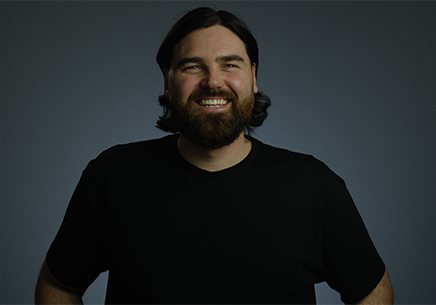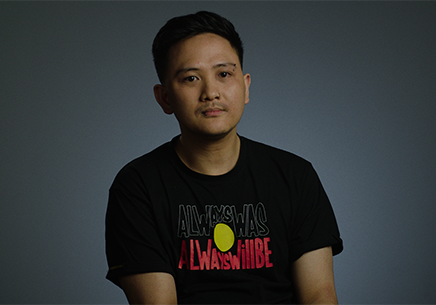Showing information for:
Next steps to get some of that therapy goodness in the UK
OK, so you’ve watched the What is Therapy series. And now you’re giving therapy some serious thought. So, let’s get into it.
Where should I look?
One option is to make an appointment with your GP. They can direct you to primary care NHS talking therapies, also known as Improving Access to Psychological Therapies (IAPT) services. These services provide free, evidence-based support for common mental health problems like stress, anxiety and depression. The waitlist is usually quite short.
The NHS also provides specialist secondary care mental health services which include psychological therapies for more complex mental health problems. To access these services you need a referral from your GP to your local secondary care mental health provider. The waitlists are often longer for these services.
Some people prefer to see a therapist privately, outside of the NHS. You’ll need to make sure you see someone who is qualified. Check a therapist register held by a professional body registered with the Professional Standards Authority. These include, amongst others, the British Psychological Society Directory of Chartered Psychologist, the Health Care Professions Council (HCPC), British Association for Counselling and Psychotherapy (BACP), British Psychoanalytic Council, UKCP (UK Council for Psychotherapy) & COSCA (Counselling and Psychotherapy in Scotland).
Other reputable professional bodies include the British Association for Behavioural & Cognitive Psychotherapies (BABCP) who provide a register of cognitive behavioural therapy (CBT) practitioners.
You can also search directories where registered practitioners advertise their services, like the Counselling Directory. If you go this route, it’ll be good to cross check a practitioner’s registration with the professional bodies above.
You can also try chatting to your family or friends and asking if they have any recommendations of someone they’ve seen and liked.
British Psychological Society Directory of Chartered Psychologist
Search for a psychologist who suits your needs.
Visit BPSDo I need a referral?
Not necessarily. You can access the NHS primary care talking therapies service directly yourself, or your GP can refer you. NHS talking therapies services are also known as the Improving Access to Psychological Therapies (IAPT) service. They help with common mental health problems like stress, anxiety and depression. For specialist secondary care mental health services, a referral from your GP is usually required. Secondary care NHS services deal with more complex mental health problems.
If you are accessing a private therapist through your health insurance provider, you’ll need authorisation from your insurer. They will provide you will a list of their registered practitioners to approach.
What are the costs?
Seeing a therapist through the NHS is free. The costs for seeing a therapist privately though can vary. Be sure to check with them what your costs and options are when you first get in contact.
You could also check to see if your workplace has an Employee Assistance Programme (EAP). These are offered at no or low cost to employees as part of employee benefits. Your employer may also provide health insurance as part of their employee benefits.
The cost to self-fund private psychological therapy generally varies depending on the type of therapist, their experience and background. You should be able to get a sense of a person’s experience and qualifications from their profile.
What if money is an issue?
In the UK, psychological therapies are provided for free through the NHS. Although there tends to be more people seeking therapy then there are therapists available, leading to longer waits. If money is an issue, we recommend you make use of these services in the first instance.
Some private therapists will offer reduced rates for people on lower incomes. Also, some organisations also offer lower cost therapy that’s provided by people in training to become therapists. When it comes down to it, private therapy does come at a financial cost when self-funding.
What should I look for in a therapist?
When you Google ‘therapist’, you won’t always get just psychologists or counsellors. Pretty much anyone can call themselves a therapist. So, you’ll want to make sure you’re seeing someone who’s qualified and registered with a professional body.
Also, have a good look through the therapist’s website. Read their bio. Look at their pic. See how it all sits with you. Any psychologist should be able to build the right relationship. Then weigh up whether face-to-face or online feels right for you. Both are great and have benefits.
It’s worth exploring the difference between CBT based approaches, psychodynamic psychotherapy, systemic therapy and general counselling.
What are the wait times?
It depends. The wait time to see a therapist through the NHS talking therapies service can vary. It’s often shorter for private therapists. But if there’s a particular therapist, time or location you’re after the wait time can be longer. Sometimes, a bit of good timing and persistence is required, so if you like someone, do continue to enquire about availability even if they’re at capacity.
What if the waiting list is months long?
This would depend on how urgent the need is. If it’s an emergency, you may need to think about accessing crisis services (see below). However, for most people the decision to go to therapy comes after a long period of umming and ahhing. So when you make the decision, spending the time while on the waitlist really motivating yourself for change, asking yourself the hard questions about what you want to work on and why, will set you up for success when you get started. All up, we know how frustrating it is to have to wait for support when you want it now, but the process of therapy is often a long journey, so just buckle up for some damn good self development.
What are the types of therapists?
Here’s the thing. Pretty much anyone can call themselves a therapist or counsellor. But if you’re investing the time and money to go to therapy, you want to make sure you’re seeing someone who has the qualifications and skills to make it safe and worthwhile.
So, who are we talking about then?
There are only two legally protected titles in the UK which are counselling psychologist and clinical psychologist. Both require doctoral level training so you can be more assured that the person seeing you will have the skills and knowledge to help.
Clinical and counselling psychologists are university-trained experts in human behaviour. They use psychological science and evidence-based approaches to help people resolve psychological distress.
There are other types of therapists who can offer help, but it can be more challenging to work out their level of knowledge, skill and experience. You can find out more about the different levels of training and accreditation from the professional body they are registered with.
Psychoanalytic psychotherapists & psycho-dynamic psychotherapists. This approach focuses on early childhood experiences, and thoughts we may not be aware of. It explores how they impact current relationships and behaviours. It’s a long-term approach. A psychodynamic therapist doesn’t direct the sessions. Instead, they invite the client to talk openly and honestly.
Systemic Psychotherapists. These therapists tend to work with couples and families. They work with the ‘systems’ a person lives in (e.g. culture, socioeconomic class, etc) and locate the cause of distress as external to the individual.
Counsellors. Counsellors tend to offer a listening ear and use person-centred approaches that create an environment where people can talk about the issues they are struggling with. Counselling skills are the foundations of all therapeutic conversations.
What are the types of therapy?
There are heaps of different types. Until you’ve had some experience with therapy though, it probably doesn’t make a too much of a difference what type your therapist uses. Once they get to know you, they’ll probably be able – and willing – to guide you through a therapy journey.
Some types of therapy available:
Should men see a male therapist?
Not necessarily. The main aim is to feel comfortable and safe with your therapist. Regardless of their gender. Also, we might think we’d prefer a specific gender, but stepping outside our comfort zone can lead to new discoveries and unexpected benefits.
That said, seeing a male therapist is helpful for many men. Some guys feel they relate better to another man or feel more comfortable in the shared lived experience of ‘being a man’. Although less than a quarter of therapists are men, so finding one might be tricky.
For other guys, though, seeing a male therapist too confronting (at least at the beginning). They might prefer a female therapist for any number of individual reasons, we don’t judge and neither will they! Men, women and anything in between, these therapists are all trained to support you on your mental health journey.
Focus more on seeking out someone you think you’ll feel comfortable with.
Focus on whether or not you connect with them first, rather than their gender.
How do I talk to my therapist for the first time?
A clever trick is to pretend they’re a long-lost friend you haven’t spoken to in a while and update them on your life. These don’t need to be hard, dark and awkward conversations, therapists are just humans. They’re not there to judge, they’re there to confidentially understand and support.
Don’t force it. Your new therapist is used to talking to people for the first time, so let the therapist lead and do their thing. It's important for you to be honest, and to let your therapist know if there’s something you’re not ready to talk about yet.
You can always make initial contact with a therapist and request an opportunity to chat over the phone. This gives you a feel for whether they would be a good fit.
Tip 1
Let the therapist lead and do their thing.
Chat to them like a friend you haven’t seen in a while.
Let them know what’s been going on in your life.
How should I prepare for a session? Especially the first one?
1. Jot down questions, goals, fears and motivations. Use a piece of paper or your phone. Think through all of these and try and be as open and honest as you can be. Have a think about your expectations and voice them to your therapist so you’re on the same page. Try this before any session.
2. Have an idea of your goals for therapy. Some good prompting questions to ask yourself are “What do I want to get out of therapy?”, “What changes do I want in my life/what do I want to be different?”, “How will I know when I’m done with therapy – what will be different for me?”, and “What’s not working and why?”
3. Relax. Try to free up your day after the session, or at least try not to immediately rush into another appointment or meeting.

Part of me was thinking everyone's stressed, get over it. But, what kept me on track was knowing that I can't feel like this forever.
Mark

Be fully committed to helping yourself, whatever it takes, however many psychologists you have to see or what you have to learn. There is an answer at the end.
Theodore

I think there's something valuable in being able to let out the things that have been really getting you down in one place, in a single place, and that's the place where you can process it, or you can leave it.
Nathan

It doesn't have to be that formal if you don't want it to be. Like, I made my therapist a slideshow.
Wolf
FREQUENTLY ASKED
QUESTIONS
How often should I see my therapist?
You’ll probably want to start with every week, or every other week, for the first few sessions. This will help your therapist get to know you and understand your concerns. After a few sessions you’ll both have a better idea about how often to meet.
Most research into the effectiveness of therapy is based on weekly or fortnightly sessions. This is more of an ‘active’ approach to therapy. Monthly sessions, or less, are more of a maintenance approach.
It can depend though on how they tend to work. And what you prefer. It’s the time between therapy sessions where the real work (practice/exposure etc.) gets done. So, leave enough time in between to live a little.
What should I do between sessions?
Some therapists give homework to complete between sessions. But most just ask you to think about and try to incorporate what you’ve discussed during the session. It might be time to invest in a journal to jot down any brainwaves.
Your therapist will help you implement changes between sessions. This will mostly be based on the work you’re doing with them. Making day-to-day progress is key, and if you fall off the horse, the important thing is you don’t let it run away. Perseverance is the long game.
You can also talk to friends and family about what you’re hoping to work on and ask them to call you out if you’re falling back into patterns. The trusty old eat/sleep/exercise/repeat approach works well, too.
What if I start to struggle between sessions?
You don’t have to just sit and wait for your next appointment. Contact your therapist and ask to move your next session forward if possible.
If your therapist has taught you some coping skills, practice them. It’s the same as learning to play a sport, an instrument, or a video game: you have to practice to get better.
Also know that true, long-term resilience comes from within. So, riding the ups and downs and surviving it is real success. It’s expected the road will be bumpy and you will fall off the horse, but it’s how you get back on it that matters.
What if i’m having thoughts of self-harm or suicide?
There is always someone available, 24/7.
There are crisis and emergency services available specifically for this. If you are having thoughts about self-harm or suicide call a service immediately.
999 or 111
Other support and counselling services
Men’s Minds Matter: Suicide prevention and intervention.
Hub of Hope: The UK’s leading support database.
NHS: Urgent help for mental health.
What’s next?
Check out all five ‘What is therapy’ videos if you haven’t already. Re-watching can be helpful, too – and we’re not just saying that because we made them. And hey, if you know someone who might find them useful, share away.
We’d love to learn about your experience on Movember Conversations
We're here to create better tools and resources for you and your life. So open up! Tell us your thoughts and ideas.
